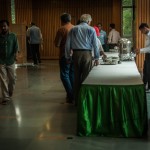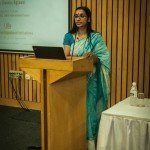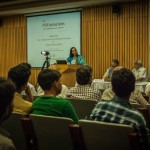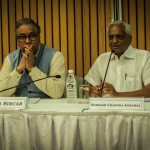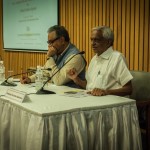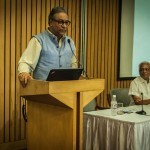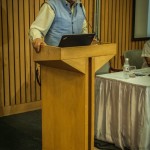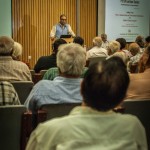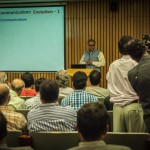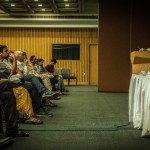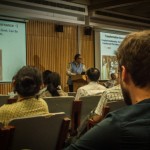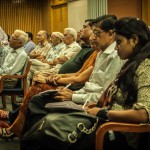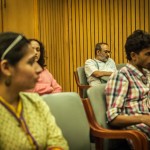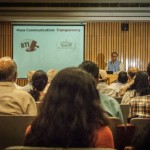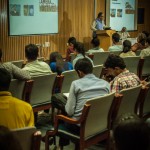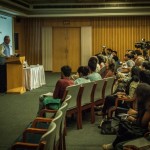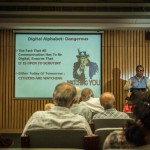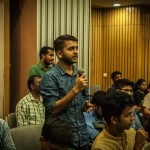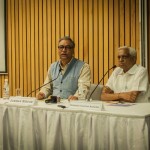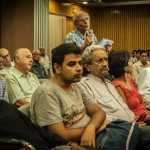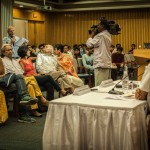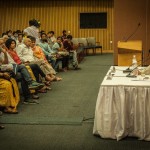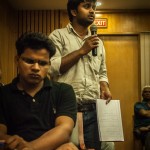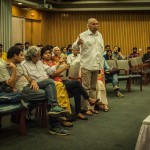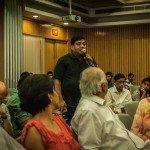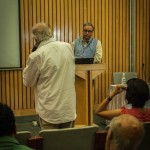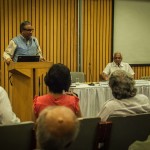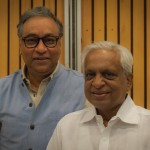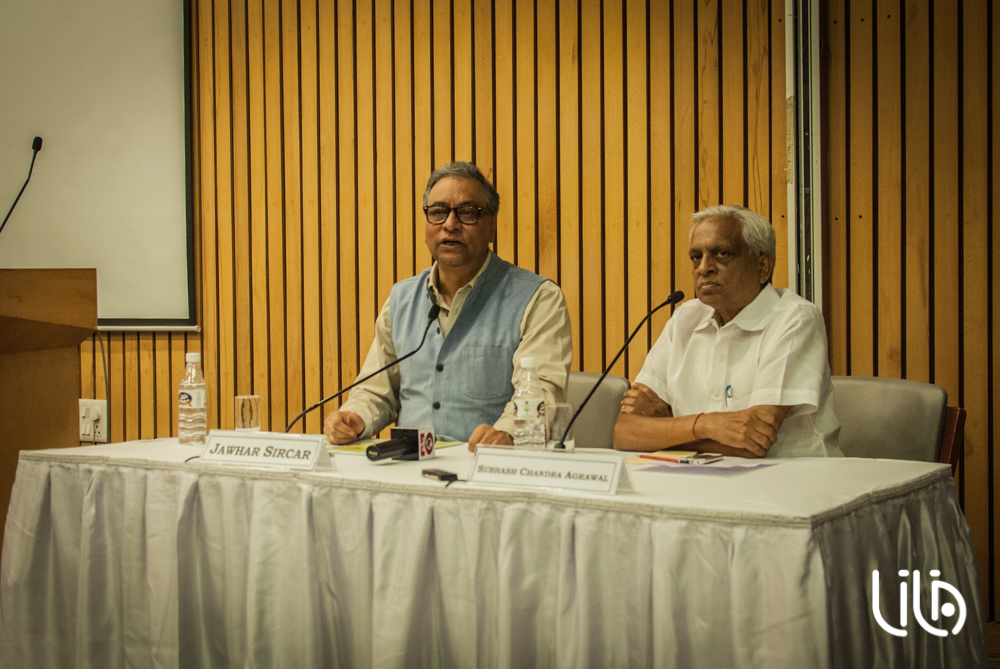
“The implied relationship between Mass Communication and the government is that the former can transform the latter,” said Jawhar Sircar, CEO, Prasar Bharati, at the second LILA PRISM 2015 lecture on ‘Mass Communication and Transformative Governance’. “But, we must understand the difference between ‘government’ and ‘governance’. Effective mass communication can change the government, as we have seen in the recent cases of the AAP movement, Narendra Modi’s election campaign, or more revolutionary engagements like what the world witnessed at Tahrir Square or Taksim Square or Tiananmen Square, but transforming governance would mean altering the quality of people’s everyday life.”
Jawhar Sircar’s well-structured lecture began with a quick prelude tracing the evolution of mass communication from the days of the drum beater through the advent of the audio-visual media to the social media networks today. He also identified the direct-contact trajectory of mass communication by referring to the practices of the notorious demagogues and famous orators — exclaiming, it is often a matter of contention where the difference between the two ends.
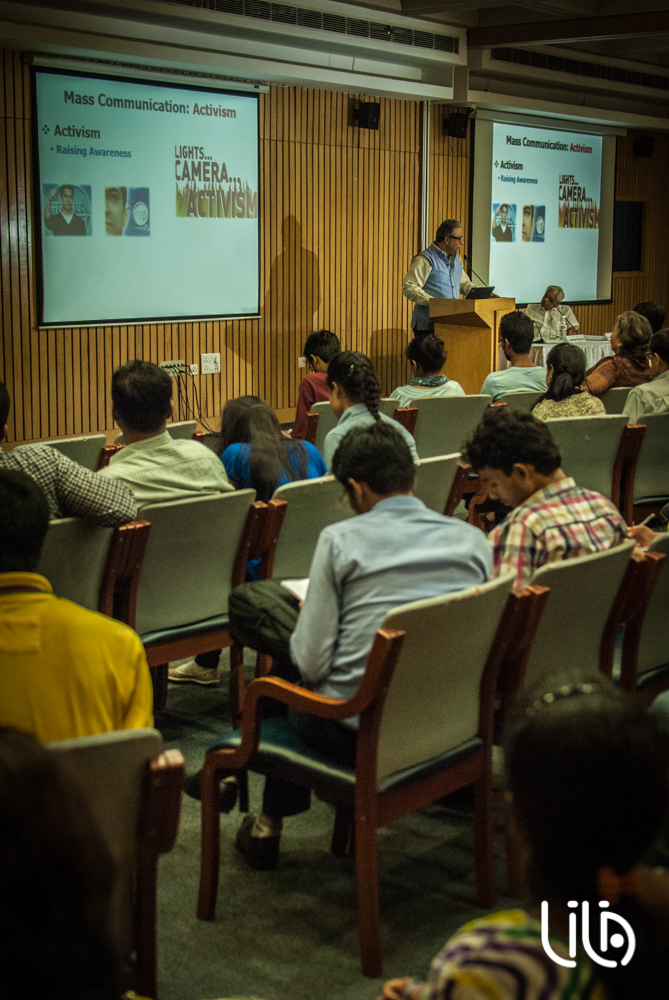
Sircar presented a study of the impact media has or does not have on governance in the country. In a 130-Crore-populated space such as India, with more than 1,00,000 newspapers, the reach of print media is only 19.2%. In the case of electronic media, out of the 75 crore TV viewers in the country, only 7.5% watch the news, and out of them only 0.1% watches English news. These statistics must demolish an aggressive Channel News Anchor’s famous claim that he speaks for the nation, and the ‘nation wants’ this or that. The percentage of viewership is much higher when it comes to other programmes such as movies and serials. The question here is what is ‘mass’ and what is ‘communication’ vis-à-vis the news channel enterprises.
But Mobile phones, Internet and Social Media, in a short span of time, have reached a tremendous high in terms of usage. Out of the 30 crore internet users in the country, about 20% use Social Media. This accessibility has brought in a new level of transparency in mass communication — digital openness in the connected world. Coupled with this has come the Right To Information revolution — and it now seems that mass communication can indeed function as a ‘king maker’. But the facets of this transparency are interesting — some take the form of ‘heads must roll’, as in the case against Suresh Kalmadi. It could aggravate mass movements as had happened in the cases of ‘Bring Lokpal’ campaign and the Nirbhaya outrage, raise awareness levels, and push people into activism.
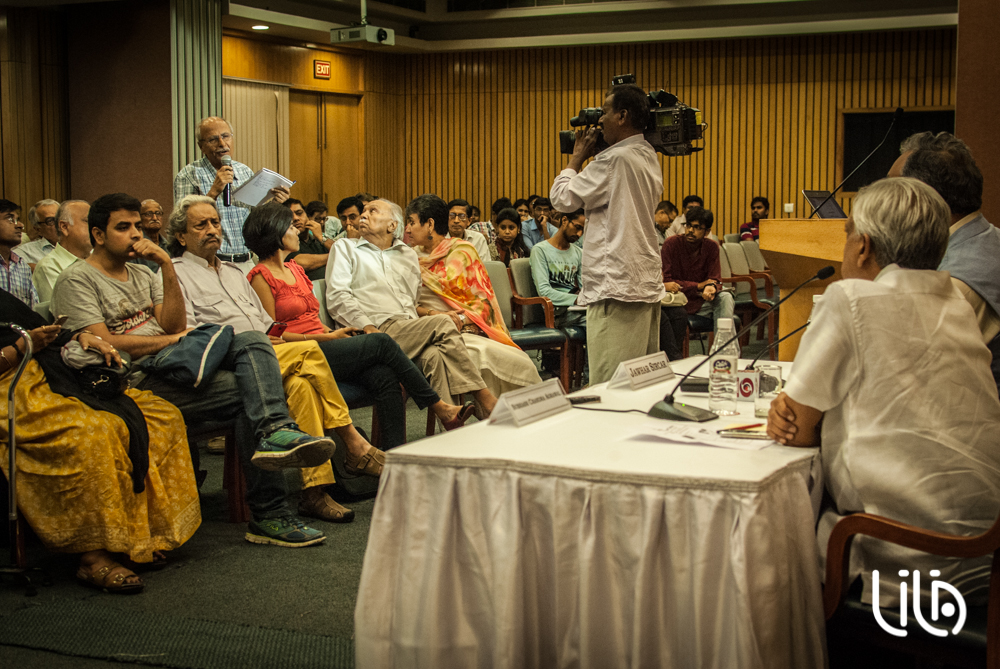
In the case of government, mass communication becomes a key enabler of its public appeal, coherence of messages and leadership shaping opinions. A flip side of the digital revolution is that there is nil security. It can work to the advantage of people and to the disadvantage of establishments, as we saw in the cases of Assange and Snowden. Hence, governments tend to get very cautious about the digital alphabet. But, for the people, the first and the most significant hope for transformation of governance is just that — the awareness the government has, that people are watching, at all times.
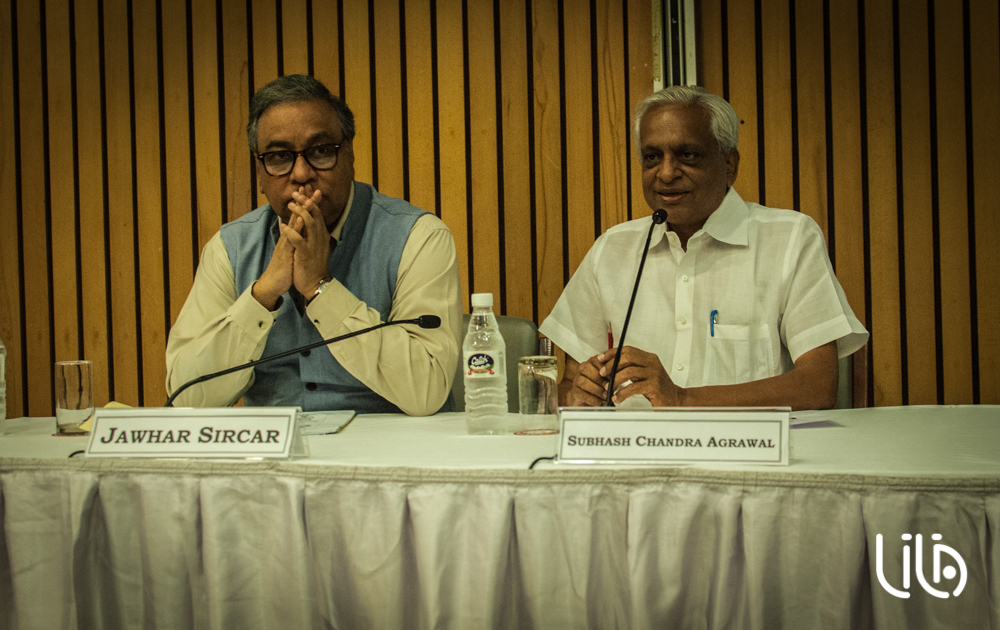
Subhash Chandra Agrawal, RTI activist, chaired the lecture and shared his moments of interaction with Jawhar Sircar. He said, normally, an RTI activist and a government official should be on opposite sides of an issue, but Sircar, just like him, has come from a middle class background, and is firmly grounded in his concerns for the people, as he feels and thinks “like one of us”, and hence his work always keeps people in the forefront of affairs.
Introducing the lecture, Rizio Yohannan Raj, Executive Director of LILA Foundation for Translocal Initiatives, said it is very important to see how different functional spaces can effect transformative governance by working together, and positioned LILA PRISM as such a platform.
In its third edition, LILA PRISM Lecture Series 2015 focuses on ‘Transformative Governance‘ through fifteen public lectures from August to December, by bringing together 30 thinker-doers from different walks of life as Speakers and Chairs.
Satchin Joseph Koshy
Jawhar Sircar is an Indian civil servant with 40 years experience, and is presently the Chief Executive Officer of Prasar Bharati. Subhash Chandra Agrawal, renowned Right To Information activist, chaired the lecture and moderated the discussion. More details about the participants and the event here.


